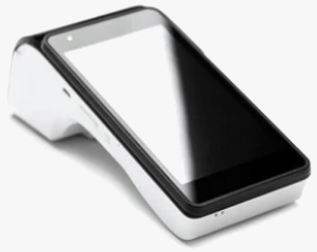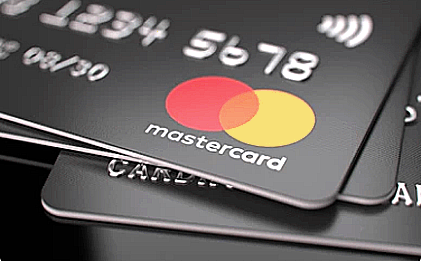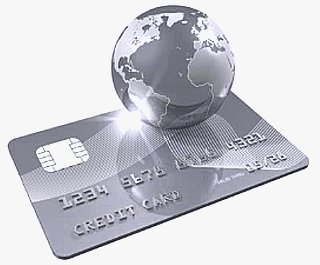Accredited InvestorsAltcoinAnatoli UnitskyAnti-Money Laundering (AML) In CryptoAPIArbitrageArtCoin TokenArticle DirectoryASICAuction Terminology GlossaryBasics of Stock Market InvestingBear MarketBest Crypto Payment Provider In the WorldBitcoinBlockchainBlockchain ConfirmationBlockchain Consensus MechanismBlockchain ForkBlockchain GlossaryBored Ape Yacht ClubBuild a Business That OutperformsBull MarketBuying SkyWay SharesByzantine Fault Tolerance (BFT) ExplainedCasascius CoinCentral Bank Digital Currency (CBDC)Centralized Crypto ExchangeCoinCoinsetCold WalletCollateralCommodity Futures Trading Commission (CFTC)Cross-Chain TechnologyCRUCrypto ExchangeCrypto GlossaryCrypto JokesCrypto Terms to KnowCrypto TickerCryptocurrencyCryptographyCryptojackingCryptounit BlockchainCryptounit GlossaryCryptounit ProgramdApp (Decentralized Application)Dead CoinDecentralized Exchange (DEX)Decentralized Finance (DeFi)Difference Between Bitcoin and EthereumDifferent Ways of Investing MoneyDigital CurrencyDistributed LedgerDo Your Own Research (DYOR)Dollar Cost Averaging (DCA)Dow Jones Industrial Average (DJIA)EncryptionERC-20ERC-721EthereumEvoScentFear Of Missing Out (FOMO)Fear, Uncertainty and Doubt (FUD)Fiat MoneyFNT Fintech CompanyGenesis BlockGlobal Unit PayGlossary of Banking TermsGlossary of Business TermsGlossary of Financial TermsHalvingHODLHot WalletHow Do I Start InvestingHow Rich is Satoshi Nakamoto?How to Create a BlockchainHow to Find Private InvestorsHow to Get Into FintechHow to Program Smart ContractsI Am Thrilled to Be a Part of This Global ProjectInitial Coin Offering (ICO)Initial Public Offering (IPO)Initial Token Offering (ITO)Innovation Basalt TechnologyInnovative Transportation TechnologiesInternational Bank Account Number (IBAN)Investing in Gold Mining StocksInvesting in Gold MiningJagerJoy of Missing Out (JOMO)Know Your Customer (KYC)LedgerLiquidity in CryptocurrencyMaker and Taker Fees in Crypto TradingMarket Capitalization (Market Cap)Meme CoinMetal Credit CardMetaMaskMillenials Now Have Access to Generational WealthMy Best Investment EverNew Digital EvolutionNFT GlossaryOff-Chain TransactionsOn-Chain TransactionsOpen Edition NFTPeer-to-Peer (P2P)Personal Loan GlossaryProbably the Best STO on the MarketProof of Stake (PoS)Real Estate Glossary of TermsReal Estate Investing GlossaryRebase TokenSecurities and Exchange Commission (SEC)Security Token ExchangesSecurity Token Offering (STO)Soulbound Decentralized Identities for Security TokensSoulbound ID Launch by Stobox Proves a SuccessSoulbound TokensStoboxStock Market GlossaryTestimonialsTether Platform and Token (USDT)UnitEx ExchangeUnitsky String TechnologiesUNTBUSDUValidatorWe Started Investing When We Were 25What are Blue Chip NFT?What are Blue Chip Stocks?What are Crypto Assets?What are Crypto Smart Contracts?What are CryptoPunks NFT?What are Digital Assets?What are Digital Collectibles?What are Gas Fees?What are Gas Wars?What are Hashmasks?What are Non Fungible Tokens?What are Non-Sufficient Funds (NSF)?What are Soulbound Tokens (SBT)?What are Stablecoins in Crypto?What are Transactions Per Second (TPS)?What are Utility NFTs?What are Utility Tokens?What Does Burning Crypto Mean?What Does Diamond Hands Mean?What Does Paper Hands Mean?What Does To The Moon Mean?What Does WAGMI Mean?What Happened to Satoshi Nakamoto?What is a 51% Attack?What is a Baby Boomer?What is a Backlink?What is a Banner?What is a Barcode?What is a Bid-Ask Spread in Crypto?What is a Block in Blockchain?What is a Block Reward?What is a Blockchain Address?What is a Blockchain Node?What is a Blockchain Oracle?What is a Blog?What is a Bond?What is a Bot?What is a Broker?What is a Business Accelerator?What is a Cash Cow?What is a Commercial Bank?What is a Commodity?What is a Con?What is a Credit?What is a Credit Limit?What is a Credit Rating?What is a Crypto Airdrop?What is a Crypto Bridge?What is a Crypto Scam?What is a Crypto Token?What is a Crypto Wallet?What is a Crypto Whale?What is a Crypto Winter?What is a Cryptocurrency Public Ledger?What is a Cryptocurrency Roadmap?What is a DAO?What is a Dark Pool?What is a Day Trader?What is a Dead Cat Bounce?What is a Default?What is a Derivative?What is a Digital Credit Card?What is a Fiscal Quarter?What is a Fungible Token?What is a Governance Token?What is a Grace Period?What is a Hard Fork?What is a Hot Wallet?What is a Hybrid Blockchain?What is a Hybrid PoW/PoS?What is a Joint Account?What is a Market Cap?What is a Merkle Tree in Blockchain?What is a Mining Farm?What is a Nonce? What is a PFP NFT?What is a POS System?What is a Prepaid Card?What is a Private Blockchain?What is a Private Key?What is a Public Blockchain?What is a Public Key?What is a Reserve Currency?What is a Ring Signature?What is a Routing Number?What is a Rug Pull in Crypto?What is a Safe Deposit Box?What is a Satoshi?What is a Security Token?What is a Seed Phrase?What is a Shitcoin?What is a Sidechain?What is a Soft Fork?What is a Spot Market?What is a State Bank?What is a SWIFT Code?What is a Tax Identification Number (TIN)?What is a Time Deposit?What is a Transaction Account?What is a Variable Interest Rate?What is a Virtual Assistant (VA)?What is a Virtual Card?What is a Virtual Currency?What is a Visa Card?What is a Whitelist in Crypto?What is a Whitepaper?What is Accounts Payable (AP)?What is AMA in Crypto?What is Amortization?What is an Accrual?What is an ACH Transfer?What is an Actuary?What is an Addendum?What is an Algorithm?What is an Angel Investor?What is an Annuity?What is an Asset?What is an ATM?What is an Atomic Swap?What is an Audit?What is an Avatar?What is an EIN?What is an Embargo?What is an Entrepreneur?What is an IDO (Initial Dex Offering)?What is an Interest Rate?What is an Internet cookie?What is an Investment Bank?What is an NFT Drop?What is an NFT Floor Price?What is an Ommer Block?What is an Orphan Block?What is an Outstanding Check?What is an Overdraft?What is Artificial Intelligence (AI)?What is B2B (Business-to-Business)?What is B2G (Business-to-Government)?What is Bartering?What is Bitcoin Dominance?What is Bitcoin Pizza Day?What is Blockchain Immutability?What is Blockchain Used For?What is BRICS?What is Business-to-Consumer (B2C)?What is C2C (Customer to Customer)?What is Capitalism?What is Catfishing?What is CFD Trading?What is Check Kiting?What is Cloud Mining?What is Communism?What is Content Marketing?What is Decentralization in Blockchain?What is DeFi in Crypto?What is Delisting?What is Depreciation?What is Digital Marketing?What is Diversification?What is Double Spending?What is Dumb Money?What is Dumping?What is Earnings Per Share (EPS)?What is Economics?What is Email Marketing?What is Equity?What is Etherscan?What is Fintech?What is Foreign currency?What is Forex?What is Fundamental Analysis (FA)?What is GameFi?What is Generative Art NFT?What is Gwei?What is Hard Currency?What is Hash Rate?What is Hashing in Blockchain?What is Inflation?What is Initial Game Offering (IGO)?What is Interest?What is Interest Income?What is Mainnet?What is Mastercard?What is Metaverse in Crypto?What is Mining in Cryptocurrency?What is Minting NFT?What is Mobile Banking?What is Money Laundering?What is NFT Alpha?What is NFT Metadata?What is NFT Rarity?What is NGMI Meaning?What is Nominal Interest Rate?What is Online Banking?What is Open-End Credit?What is OpenSea NFT Marketplace?What is Personal Identification Number (PIN)?What is Play-to-Earn?What is Polygon?What is Proof of Authority (PoA)?What is Proof of Work (PoW)?What is Public Key Cryptography?What is Pump and Dump?What is Quantum Computing?What is Refinancing?What is Retail Banking?What is Ripple?What is Sharding?What is Slippage in Crypto?What is Smart Money?What is Solvency?What is Soulbound ID?What is SSL?What is Staking in Cryptocurrency?What is Technical Analysis (TA)?What is Testnet?What is the Ask Price?What is the Better Business Bureau (BBB)?What is the Bid Price?What is the Dark Web?What is the InterPlanetary File System (IPFS)?What is the Gold Standard?What is the Lightning Network?What is the Prime Rate?What is the Sandbox?What is the Secondary Market?What is the World Bank?What is Tier 1 Capital?What is Tokenomics?What is TRC-20?What is Universal Banking?What is Unspent Transaction Output (UTXO)?What is Usury?What is Volatility in Crypto?What is Wash Trading?What is Web3?What is Whisper?What is XRP?What is Zero-Knowledge Proof (ZKP)?Who is Beeple?Who is Satoshi Nakamoto?Who is Vitalik Buterin?Why Tokenization is a Safe HavenWhy You Should Try Your Hand at Trading
What is a POS System?
- Home
- Glossary of Banking Terms
- What is a POS System?
POS (Point Of Sale) systems have revolutionized the way businesses operate.

These systems enable businesses to process transactions quickly, accurately and efficiently. A POS system is essentially a combination of software and hardware that streamlines the process of selling products or services.
What is a POS System?
A POS system is a combination of software and hardware used to manage and process transactions. This system is used by businesses to accept payments, manage inventory, and generate sales reports. POS systems are used by retailers, restaurants, and other businesses to streamline their operations, increase efficiency, and improve customer experience.
How Does a POS System Work?
POS systems use a variety of hardware and software components to process transactions. The hardware components typically include a cash register or a touch screen computer, a barcode scanner, a cash drawer, and a receipt printer. The software component of the POS system includes the application that manages inventory, generates reports, and processes payments.
When a customer purchases a product or service, the cashier enters the item into the POS system using the barcode scanner or touch screen. The system then calculates the total amount due and generates a receipt for the customer. The customer can then pay using cash, credit card, or other payment options that are accepted by the business.
Benefits of Using a POS System
Using a POS system can provide many benefits for businesses. These benefits include:
- Increased Efficiency: POS systems automate many tasks that were once done manually, such as calculating total amounts, generating receipts, and tracking inventory. This can help businesses save time and increase efficiency.
- Improved Accuracy: POS systems eliminate the possibility of human error in calculations and data entry, ensuring that transactions are processed accurately and efficiently.
- Better Inventory Management: POS systems provide real-time inventory management, enabling businesses to track inventory levels and reorder products when necessary. This can help businesses avoid stockouts and reduce the risk of overstocking.
- Enhanced Customer Experience: POS systems can speed up the checkout process, reduce wait times, and provide customers with accurate receipts. This can improve the overall customer experience, leading to increased customer satisfaction and loyalty.
- Improved Reporting: POS systems generate detailed sales reports, providing businesses with valuable insights into their operations. This information can be used to make informed decisions about pricing, promotions, and inventory management.
The Evolution of POS Systems: Enhancements and Innovations
POS systems have come a long way from traditional cash registers. Nowadays, these systems are programmable and can be tailored to meet specific business needs. Third-party software programs can also be integrated to add functionalities such as membership programs, which award points to frequent buyers and issue discounts on future purchases. With the rise of cloud-based POS systems, businesses can track and process numerous purchases online without incurring huge upfront costs.
In the hospitality industry, location-based technology has enabled customers to interact directly with POS systems. For instance, at restaurants, customers can view menus and place orders on terminals located at their table, while in hotels, similar terminals are used to order room service or pay bills.
As competition in the retail industry intensifies, POS display manufacturers are focusing on improving aesthetics and creating innovative product designs. Retailers also demand different custom-made displays that can serve specific needs across different facilities. Customization in terms of aesthetics, capacity, and mobility can greatly impact a company's brand identification and help promote their products.
The Bottom Line
A POS system is a hardware and software combination designed to manage and process transactions, leading to increased efficiency, accuracy, better inventory management, enhanced customer experience, and valuable sales reports. This system provides numerous benefits to various businesses, whether in retail, restaurants, or other industries.
POS systems have undergone advancements to meet the varying needs of businesses, incorporating third-party software, cloud-based systems, and location-based technology, making them more efficient, accurate, and customer-friendly.
Customization of POS displays has also become a crucial aspect of brand promotion, allowing businesses to streamline their operations and identify with their brand. As technology advances, further innovative enhancements in POS systems are expected to emerge.
Related Articles

What is Personal Identification Number (PIN)?
When individuals receive their debit cards, they are required to create a unique PIN that they must input every time they withdraw money from an ATM or...

What is Mastercard?
One of the key benefits of using Mastercard is the ability to access a vast network of merchants that accept the card.

Metal Credit Card
Metal credit cards also have a luxurious feel that some people appreciate. Whether it's the surprise factor of using an unusual card or the sleek look and feel of...

What is a CVV Number?
When swiping your card, make sure merchants swipe it on a Point of Sale (POS) terminal in your presence. Shield the POS PIN pad while entering your PIN.
- Home
- Glossary of Banking Terms
- What is a POS System?